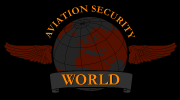Cover blown, but air marshal still flies
Spencer Pickard, who was featured on ABC's 20/20 program May 19, said Wednesday that he flew, armed, three times last week.
Marshals are supposed to fly incognito so terrorists can't overpower them and seize their pistols to hijack a plane.
Marshal service spokesman Dave Adams said Pickard "is still an active air marshal, he's still on our books, and he's going to still be flying missions."
Adams said air marshals "are supposed to blend in with the passengers." But he and another spokesman for the service, Conan Bruce, declined to address why Pickard could still fly.
Pickard was featured for about 2½ minutes on an eight minute, 40 second segment. The May 19 edition of 20/20 was watched by 8.2 million viewers, according to the Nielsen ratings service. The video was still available on ABC's website Wednesday.
Billie Vincent, who oversaw air marshals from 1982 to 1986 as Federal Aviation Administration security chief, said Pickard should no longer work as an air marshal. "After you go public, how can you blend in?" Vincent asked. "If a terrorist can identify a marshal and they have a knife, they can walk by, slit their throat and take their gun."
Rep. John Mica, R-Fla., chairman of the House aviation subcommittee, said it would be "very hard for anyone to pick him out" and noted that "there's quite a bit of information out about marshals."
Air marshals fly undercover on planes in teams of at least two. The service, started in 1961, expanded dramatically after the 9/11 attacks.
Pickard, 34, said he expected to be fired or grounded after the TV show, which charged that the Air Marshal Service's rules and procedures make marshals conspicuous in airports and aboard planes.
"I was willing to take this risk to get these issues out there," Pickard said. He has been an air marshal for four years. In 2004-05, he was a vice president of the Federal Law Enforcement Officers Association, a group that has clashed with air marshal management.
Pickard said he was "ordered to fly" on May 22, 23 and 24 but did not fly on May 26 or on Wednesday. Marshals assigned to fly with him on those two days sought different partners because they felt their security was jeopardized by Pickard's exposure, he said.
Pickard's TV appearance coincided with a congressional report criticizing the service for failing to protect marshals' anonymity. The House Judiciary Committee report cites the boarding procedures for marshals and says the service has "shared tactics, methods and procedures, many of which should be considered sensitive, with local and national media."
Bruce, the spokesman, said policies cited in the report "have either been changed or are going through changes" under Dana Brown, who took over the service in March.
USA TODAY









0 Comments:
Post a Comment
<< Home